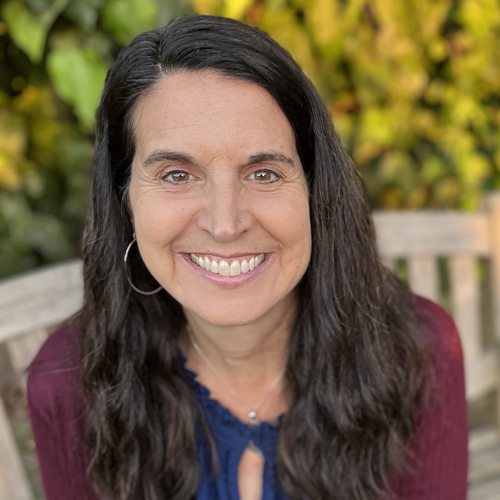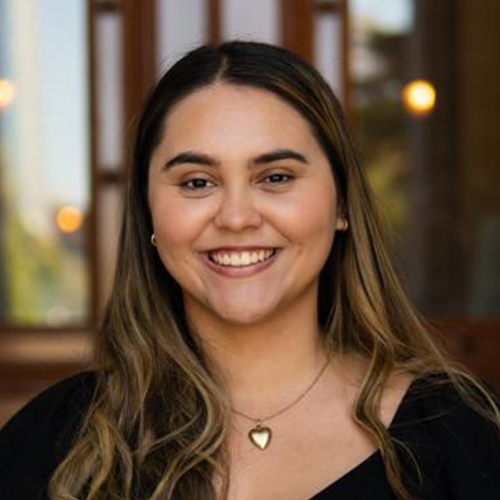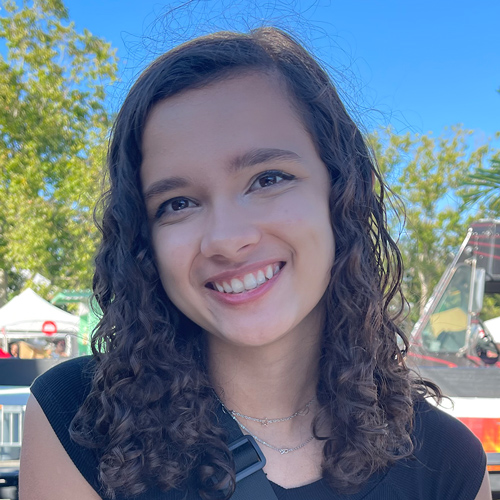Peer-to-Peer California High School Pilot Demonstration
Peer-to-Peer Youth Mental Health
Peer support is an essential evidence-based strategy for supporting mental health with more than 80 years of proven results. Peer-to-peer programs in schools are a multi-benefit solution to the youth mental health crisis that addresses the broken medical model, focuses on prevention, enables culturally responsive support, mitigates the provider shortage, and, in some models, can offer a workforce development pipeline for youth.
The current emotional and mental health crisis for youth is an escalation of unaddressed socioemotional, identity development, and health care needs, exasperated by the COVID-19 pandemic. In particular, research shows that Black and Latine girls, Indigenous, and LGBTQ youth represent a distinct group of young people who are disproportionately impacted by mental health crises. These alarming trends in children’s mental health are compounded for youth with several marginalized identities, including their gender identity, sexual orientation, and race or ethnicity.
In response, young people across California have advocated for culturally responsive, gender-affirming mental health support. They have put forward policy recommendations to build the capacity of youth peer leaders within their school communities, building on strategies laid out in the TCP Advancing School-Based Mental Health, California Children’s Trust Youth Supporting Youth, and Mental Health America’s Expanding Community-Driven Mental Health Resources policy briefs, and in alignment with the integrated ecosystem envisioned by the CYBHI and included in the working paper: California’s Children & Youth Behavioral Health Ecosystem.
Peer-to-Peer Youth Mental Health High School Pilot Demonstration
The Peer-to-Peer Youth Mental Health High School Demonstration Pilot is a school-based youth-driven mental health grant opportunity. We are proud to be spearheading this effort in partnership with the California Department of Health Care Services (DHCS).
As included in the California 2022-2023 State Budget, this grant will administer a historic investment in youth mental health and well-being through an $8 million effort to support eight high schools (grades 9-12) in urban, suburban, and rural areas of the state as pilot sites in California for a student peer-to-peer program. Exceptional youth leaders, including Sriya Chilla and Nghia Do at the California Children’s Trust, championed this new investment in peer support. Together with support from the legislature, the project is a direct recommendation from TCP’s youth policy council, The Hope, Healing and Health Collective (H3C).
The Children’s Partnership is committed to a collaborative partnership with the eight high school grantees, desiring to identify best practices for peer-to-peer programs that can be implemented statewide and serve as a model for national efforts. The Children’s Partnership will contribute to advocacy for sustainable funding and infrastructure for youth-driven, peer-to-peer programs in California.
Increasing access to youth peer-to-peer programs will further the goals of California’s Children and Youth Behavioral Health Initiative (CYBHI). Authorized as part of the 2021 Budget Act, the CYBHI is a multi-year, multi-department package of investments that reimagines the systems that support behavioral health (BH) and wellness for all California’s children, youth, and their families. Efforts focus on promoting social and emotional well-being, preventing BH challenges, and providing equitable, appropriate, timely, and accessible services for emerging and existing BH needs for children and youth ages 0-25. The $4.6 billion investment in CYBHI will improve access to, and the quality of, BH services for all children and youth in California, regardless of payer.
Peer-to-Peer High School Pilot Demonstration Grantees
Public High Schools across California were invited to apply for the Peer-to-Peer Youth Mental Health High School Pilot Demonstration grant opportunity in early 2024. After a robust selection process, Eight phenomenal school communities were selected as grant recipients and pilot demonstration partners.

El Cerrito High School, EL Cerrito, CA

Da Vinci RISE High School, El Segundo, CA

Nevada Union High School, Grass Valley, CA

Oakland Technical High School, Oakland, CA

Serrano High School, Phelan, CA

Sierra High School (Continuation High School), San Bernardino, CA

Mission Hills High School, San Marcos, CA

Antioch High School, Antioch, CA
The collaborative partnership with the eight high school grantees will help TCP identify best practices for peer-to-peer programs that can be implemented statewide, serve as a model for national efforts, and contribute to advocacy for sustainable funding and infrastructure for youth- driven, culturally responsive peer support programs in California.
Meet our TCP Peer-to-Peer Pilot Demonstration Advisory Council
The TCP Peer-to-Peer Advisory Council consists of statewide experts in youth leadership, mental health, healing-centered approaches, equity-informed community programming, and youth organizing to provide input on the pilot program’s design and implementation. The Children’s Partnership believes in the power of youth to be able to contribute meaningfully in identifying the best solutions to the challenges and barriers they face, and we are proud that this advisory council is inclusive of and represented by a diverse group of youth ages of 15-21.

Amy Blackshaw

Angela Vazquez

Deannie Choiselat
Erioni Hunter

Kristen McKena

Rani Sindledecker

Saanvi Arora

Sarah-Michael Gaston

Sriya Chilla
Wendy Pacheco
Anuoluwapo Olabode
Peer-to-Peer Youth Mental Health
Peer support is an essential evidence-based strategy for supporting mental health with more than 80 years of proven results. Peer-to-peer programs in schools are a multi-benefit solution to the youth mental health crisis that addresses the broken medical model, focuses on prevention, enables culturally responsive support, mitigates the provider shortage, and, in some models, can offer a workforce development pipeline for youth.
The current emotional and mental health crisis for youth is an escalation of unaddressed socioemotional, identity development, and health care needs, exasperated by the COVID-19 pandemic. In particular, research shows that Black and Latine girls, Indigenous, and LGBTQ youth represent a distinct group of young people who are disproportionately impacted by mental health crises. These alarming trends in children’s mental health are compounded for youth with several marginalized identities, including their gender identity, sexual orientation, and race or ethnicity.
In response, young people across California have advocated for culturally responsive, gender-affirming mental health support. They have put forward policy recommendations to build the capacity of youth peer leaders within their school communities, building on strategies laid out in the TCP Advancing School-Based Mental Health, California Children’s Trust Youth Supporting Youth, and Mental Health America’s Expanding Community-Driven Mental Health Resources policy briefs, and in alignment with the integrated ecosystem envisioned by the CYBHI and included in the working paper: California’s Children & Youth Behavioral Health Ecosystem.
